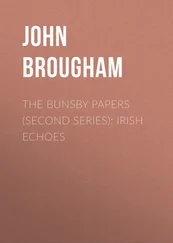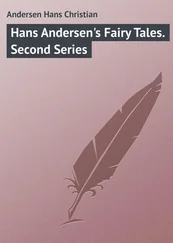Henry Wood - Johnny Ludlow, Second Series
Здесь есть возможность читать онлайн «Henry Wood - Johnny Ludlow, Second Series» — ознакомительный отрывок электронной книги совершенно бесплатно, а после прочтения отрывка купить полную версию. В некоторых случаях можно слушать аудио, скачать через торрент в формате fb2 и присутствует краткое содержание. Жанр: foreign_prose, literature_19, foreign_antique, на английском языке. Описание произведения, (предисловие) а так же отзывы посетителей доступны на портале библиотеки ЛибКат.
- Название:Johnny Ludlow, Second Series
- Автор:
- Жанр:
- Год:неизвестен
- ISBN:нет данных
- Рейтинг книги:3 / 5. Голосов: 1
-
Избранное:Добавить в избранное
- Отзывы:
-
Ваша оценка:
- 60
- 1
- 2
- 3
- 4
- 5
Johnny Ludlow, Second Series: краткое содержание, описание и аннотация
Предлагаем к чтению аннотацию, описание, краткое содержание или предисловие (зависит от того, что написал сам автор книги «Johnny Ludlow, Second Series»). Если вы не нашли необходимую информацию о книге — напишите в комментариях, мы постараемся отыскать её.
Johnny Ludlow, Second Series — читать онлайн ознакомительный отрывок
Ниже представлен текст книги, разбитый по страницам. Система сохранения места последней прочитанной страницы, позволяет с удобством читать онлайн бесплатно книгу «Johnny Ludlow, Second Series», без необходимости каждый раз заново искать на чём Вы остановились. Поставьте закладку, и сможете в любой момент перейти на страницу, на которой закончили чтение.
Интервал:
Закладка:
The little baby was dead, Charles Ashton said. The mother had been removed to a shelter in Timberdale village, and was being cared for. The doctor, called in to her, Darbyshire, thought she might get over it.
“You baptized the child, I hear, Charles?” said Mrs. Coney, to the parson.
“Oh yes.”
“What did you name it?”
“Lucy. Something in the mother’s face put me in mind of my sister, and it was the name I first thought of. I asked the mother what she would have it called. Anything, she answered; it did not matter. Neither did it, for the little thing was dying then. Hot-water bottles and other remedies were tried last night as soon as they could be had, to get warmth into the child—to renew its life, in fact; but nothing availed.”
“Where was the woman taken to?”
“To Jael Batty’s. Jael consented to take her in.”
“I suppose it is but another case of the old, sad story?” groaned Mrs. Todhetley.
“Nothing else. And she, poor thing, is not much more than a girl.”
“Now, Charles, I tell you what. It may be all very consistent for you clergymen—men of forgiveness, and that—to waste your compassion over these poor stray creatures, but I think it might do more good sometimes if you gave them blame,” spoke Mrs. Coney, severely.
“There are times and seasons when you cannot express blame, however much it may be deserved,” he answered. “The worst of it in these cases is, that we rarely know there exists cause for censure before it is too late for any censure to avail, or avert the evil.”
What with the astounding events of the day, connected with the interrupted wedding, nothing more was said or thought of the affair. Except by Jane. When she and I were in the big dining-room together—I trying to blow up the fire, and she in full dread that Robert Ashton would have to be tried for his life at the Worcester Spring Assizes, and lie in prison until then—she suddenly spoke of it, interrupting the noise made by the crackling of the wood.
“So that poor baby’s dead, Johnny! What a happy fate—not to grow up to trouble. Charles named it Lucy, I hear. I should like to see the poor mother.”
“See her for what, Jane?”
“She is in distress, and so am I. I don’t suppose she has a corner to turn to for comfort in the wide world. I have not.”
It was not so very long after this that her distress was over. Robert Ashton arrived in triumph, and so put an end to it. One might suppose Jane would no longer have remembered that other one’s distress; what with the impromptu dinner, where we had no room for our elbows, and the laughter, and the preparations for the next day’s wedding.
But the matter had taken hold of Jane Coney’s mind, and she reverted to it on the morrow before going away. When the wedding-breakfast was over, and she—nevermore Jane Coney, but Jane Ashton—had changed her dress and was saying good-bye to her mother upstairs, she suddenly spoke of it.
“Mamma, I want to ask you to do something for me.”
“Well, my dear?”
“Will you see after that poor young woman who was found in the shed?”
Naturally Mrs. Coney was taken by surprise. She didn’t much like it.
“After that young woman, Jane?”
“Yes; for me.”
“Mrs. Broom has seen to her,” returned Mrs. Coney, in a voice that sounded very frozen.
“Mother, dear,” said Jane, “I was comparing myself with her yesterday; wondering which of us was the worst off, the more miserable. I thought I was. I almost felt that I could have changed places with her.”
“Jane!” angrily interjected Mrs. Coney.
“I did. She knew the extent of her trouble, she could see all that it involved; I did not see the extent of mine. I suppose it is always thus—that other people’s sorrows seem light when compared with our own. The reason must no doubt be that we cannot realize theirs, whilst we realize ours only too keenly.”
“My dear, I don’t care to talk of this.”
“Nor I much—but hear me for a minute, mother. God has been so merciful to me, and she is still as she was, that I—I should like to do what I can for her when we come back again, and comfort and keep her.”
“Keep her!”
“Keep her from want, I mean.”
“But, child, she has been—you don’t know what she has been,” gravely rebuked Mrs. Coney.
“I think I do, mother.”
“She is a poor outcast, Jane; with neither home to go to, nor friends to look upon her.”
Jane burst into tears: they had been hardly kept down since she had begun to speak.
“Just so, mother. But what was I yesterday? If Robert had been tried for his life, and condemned, I should have felt like an outcast; perhaps been looked upon as no better than one by the world.”
“Goodness, Jane, I wish you’d exercise your common sense,” cried Mrs. Coney, losing patience. “I tell you she is an outcast, and has forfeited home and friends. She has been a great sinner.”
“Mother, if she had a home and friends, there would be no need to succour her. As to sin—perhaps we can save her from that for the future. My gratitude for the mercy shown to me is such that I feel as if I could take her to my bosom; it seems to my mind that I ought to do something for her, that she has been thrown in my way that I should do it. Mother, it is my last petition to you: see after her a little for me until we come back again.”
“Very well, dear; as you make this point of it,” concluded Mrs. Coney, relenting just a little. And then Jane began to cry hysterically; and Tom Coney knocked at the door, saying time was up.
Mrs. Coney was not a hard-hearted woman, just the opposite: but only those who live in rural parts of the country can imagine the tricks and turns of regular tramps, and what a bad lot some of them are. They deceive you with no end of a plausible tale, and stare pitifully in your face whilst they tell it. Not long before this, a case had happened where both our house and the Coneys’ had been taken in. A woman in jagged widows’ garments presented herself at the door of Crabb Cot and asked to see the Squire. Her shoes wanted mending, and one side of her face was bandaged up. Mrs. Todhetley went to her. Of all pitiable tales that poor woman told the most: it would have melted a heart of stone. She came from near Droitwich, she said: her husband had worked under Sir John Pakington; that is, had been a labourer on part of his estate, Westwood Park. She lost her husband and grown-up son the past autumn with fever; she caught it herself, and was reduced to a skeleton, lost her cottage home through the things being seized for rent, and went to live with a married daughter in Oxfordshire. Cancer had appeared in her cheek, the daughter could not keep her, for she and all her children were down with sickness, and the husband had no work—and she, the widow, was making her way by easy walking-stages to Worcester, there to try and get into the infirmary. What she wanted at Crabb Cot was—not to beg, either money or food: money she could do without, food she could not eat—but to implore the gentleman (meaning the Squire) to give her a letter to the infirmary doctors, so that they might take her in.
I can tell you that she took us in—every one of us. The Squire, coming up during the conference, surrendered without fight. Questions were put to her about Droitwich and Ombersley, which she answered at once. There could be no mistaking that she knew all the neighbourhood about there well, and Sir John and Lady Pakington into the bargain. I think it was that that threw us off our guard. Mrs. Todhetley, brimming over with compassion, offered her some light refreshment, broth or milk. She said she could not swallow either, “it went against her,” but she’d be thankful for a drink of water. Molly, the greatest termagant to tramps and beggars in general, brought out a half-pint bottle of store cordial, made by her own hands, of sweetened blackberry juice and spice, for the woman to put in her pocket and sip, on her journey to Worcester. Mrs. Todhetley gave her a pair of good shoes and some shillings, and two old linen handkerchiefs for the face; and the Squire, putting on his writing spectacles, wrote a letter to Mr. Carden, begging him to see if anything, in the shape of medical aid, could be done for the bearer. The woman burst into tears of thankfulness, and went away with her presents, including the letter, Molly the cross-grained actually going out to open the back-gate for her.
Читать дальшеИнтервал:
Закладка:
Похожие книги на «Johnny Ludlow, Second Series»
Представляем Вашему вниманию похожие книги на «Johnny Ludlow, Second Series» списком для выбора. Мы отобрали схожую по названию и смыслу литературу в надежде предоставить читателям больше вариантов отыскать новые, интересные, ещё непрочитанные произведения.
Обсуждение, отзывы о книге «Johnny Ludlow, Second Series» и просто собственные мнения читателей. Оставьте ваши комментарии, напишите, что Вы думаете о произведении, его смысле или главных героях. Укажите что конкретно понравилось, а что нет, и почему Вы так считаете.












